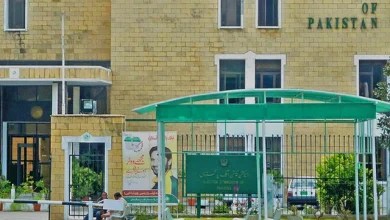Unrest within marriages

.
The writer is an educationist based in Larkana. She can be reached at sairasamo88@gmail.com
Marriage is a sacred bond that religion cherishes, society accepts and psychologists believe as a source of emotional satisfaction and stability. This bond weakens when trust is broken. When either partner cheats or betrays the other, the loss becomes irreparable. In far too many Pakistani homes today, this sanctuary is cracking under the weight of betrayal. Across the country, tragic cases emerge where either the husband is killed by the wife or the wife is killed by the husband, leaving behind unbearable trauma and suffering for the children.
Incidents of extramarital relationships have become a serious social malaise, fuelling mistrust, violence and tragedy inside homes. According to the Pakistan Demographic and Health Survey (PDHS), 34.2 per cent of married women aged 15-49 in Pakistan reported experiencing some form of domestic violence, including emotional, physical or sexual abuse. In a rural community of Lahore, more than half the women surveyed reported both physical and sexual violence by their husbands. These figures expose that betrayal and the breakdown of marital trust are not uncommon but painful realities in society.
Infidelity is difficult to measure precisely in our societies, as many cases remain hidden or unreported. However, when it does surface, it often connects to the same forms of violence recorded in these surveys. In one report published in this newspaper on November 6, 2019, a woman in Faisalabad was publicly beaten after being accused by a landowner of having an extramarital affair. It was a vivid illustration of how infidelity can trigger a chain reaction of humiliation, anger, estrangement, and eventually, violence.
The situation worsens due to the lack of emotional support, the stigma surrounding the act of seeking help, and the social expectation that marital problems must be tolerated in silence. A mixed-method study in Rawalpindi and Islamabad found that 49 per cent of married women reported verbal abuse and 52 per cent emotional abuse, and that 52 per cent of husbands made major decisions without consulting their wives. These conditions of powerlessness, betrayal and isolation create a volatile emotional environment. When one partner steps outside the bounds of trust, the consequences can be devastating.
The impact extends far beyond the couple. Children absorb the trauma, families fracture and the social contract weakens. In a society where marriage is viewed as an unbreakable contract rather than an evolving partnership, the betrayal of trust becomes a fault line that leads to violence, despair and destruction.
Our religious and cultural teachings rightly place great value on faithfulness and mutual respect in marriage. However, teachings alone are not enough. Loyalty is more than a word; it is a stabiliser and the bond upon which emotional safety, psychological health and social order depend. When fidelity is lost, the collapse of relationships is rarely quiet.
The couple needs greater access to marital counselling, mental health services and open platforms for couples to address infidelity, emotional betrayal and conflict before these issues escalate. Schools and media should educate people not only about the duties of marriage but also about its emotional aspects, such as communication, accountability and transparency. Legal and social safeguards must also be strengthened so that when trust is broken, the available options do not end in ultimatums, violence or tragedy.
The recent tragic incident in Khairpur, where a woman killed her husband and four children over alleged extramarital relations before taking her own life, has shocked the nation. The incident has brought shame to the family and exposed a severe breakdown of trust and communication within households. When domestic disputes reach a point where six lives are lost, it becomes a matter of social concern and not just a criminal case. Such incidents point to the growing emotional instability and lack of support systems within households. The tragedy also raises serious questions about mental health awareness, domestic harmony and the absence of timely interventions that could prevent such outcomes within marital relationships.



